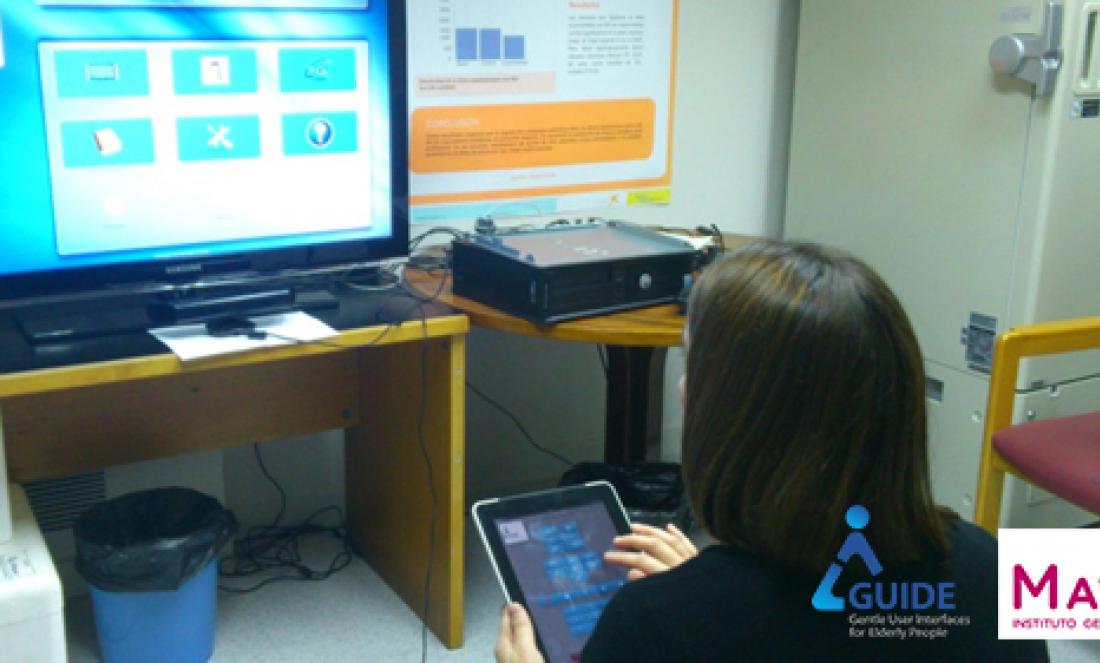
GUIDE project - Gentle User Interfaces for Elderly People - Elderly Friendly Interfaces
In our environment, many people over 65 experience some kind of difficulty, between mild and moderate, at the visual, auditory and/or motor level. The European GUIDE project "Gentle User Interfaces for Elderly People", co-financed by the 7th Framework Programme of the European Union, proposes to address this situation by creating interfaces that automatically adapt to the needs and characteristics of each person.
This project, led by the FRAUNHOFER Institute and with a consortium of 7 partners from Germany, Portugal, France, the United Kingdom and Spain (Matia Instituto Gerontológico), began in February 2010 and ended in January 2013.
The objective has been to develop accessible interfaces capable of adapting to the specific needs of people with some kind of difficulty. Developing and testing also different modalities of interaction adapted to the capacities of the users that allowed the access to different applications like "videoconference" or "access to the online University". The services were offered on a television that adapted the appearance to the needs and preferences of the user and was operated using voice, hand, a controller or an iPad or a combination of these.
The main role of Matia Instituto Gerontológico in this project has been to provide knowledge about the elderly and the needs they may have, and to lead the tests that have taken place with potential users of the system.
Throughout the 3 years of the project, different tests have been carried out (discussion groups, interviews, tests of the system in the laboratory, etc...) with more than 150 participants in Germany, United Kingdom and Spain, although most of the tests have been carried out in San Sebastian. Likewise, Matia Instituto has been in charge of all the tasks related to safeguarding the privacy and confidentiality of the participants throughout the project.
Thanks to these tests, information has been collected about:
- The user requirements: How does the system have to be in order to be useful, accepted and easy to use by the elderly?
- Effectiveness of the adaptation of the interfaces
- Degree of system usability
- Acceptance of the system by the elderly
- Cultural differences in the ease of use and acceptance of this type of system.
In the latest tests, carried out in January 2013, an advanced prototype of the system was tested, integrating different functionalities and different forms of interaction. As conclusions we can point out that:
- Older people are capable of interacting with such a system, although they require a short learning period in which it is explained to them how to use it.
- They appreciate the possibility of being able to interact with the television and the services offered by it using different forms of interaction, being the interaction by voice the preferred one by most of the participants.
- They value the fact of having a system that allows them to adapt the appearance to their needs and preferences.
- We would like to thank the professionals and users of the IZA Centre, Ricardo Bermingham Hospital and the Matia Fundazioa Rehabilitation Service as well as the ONCE Foundation and all the people who have voluntarily participated in the tests of this project for their willingness and continuous and disinterested collaboration in it.

Add new comment